Mr. Mitsuaki Aoyagi joined the Nippon Foundation (http://www.nippon-foundation.or.jp/, previously named “Nippon Senpaku Shinkou-kai”) in 1991 and tackled a number of issues, such as recovery from the Great Hanshin Earthquake, accessibility for physically challenged people, and the reinforcement of a support center for non-profit organizations. When the Great East Japan Earthquake occurred in March 2011, he was appointed as the leader of a disaster relief center launched by the Nippon Foundation. He has led various assistance projects in cooperation with private companies (e.g., a career guidance project for high school students with Phillip-Morris, a scholarship program at GLOBIS Sendai School sponsored by Daimler, regional revitalization projects through investing in human resources, changing relationships between urban regions, etc.)
He holds an MBA from the Graduate School of Management, GLOBIS University
Publications (Joint author): “Japanese ‘Selfless’ Management” (Ko-bun shinsho), “Ten Emerging Leaders in Tohoku” (Kohoku Sensho)
Team | General Incorporated Foundation KIBOW
- KIBOW HOME
- Team
Team
-
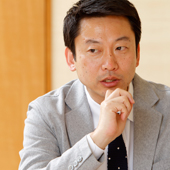 Mitsuaki AoyagiSenior Program Director, Social Innovation Program Division, The Nippon Foundation
Mitsuaki AoyagiSenior Program Director, Social Innovation Program Division, The Nippon Foundation -
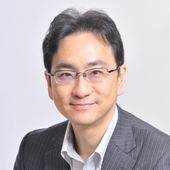 Masataka UoPresident, Japan Fundraising Association
Masataka UoPresident, Japan Fundraising AssociationMr. Masataka (Masa) Uo also serves as Vice-Chairman of the Japan National Advisory Board for the G8 Impact Investment Taskforce and is a member of the Social Investment Accelerator Forum, Vice-Chairman of Japan Volunteer Coordinators Association, and President of FUNDREX.
After having worked at JICA and the Ministry of Foreign Affairs of Japan, he founded FUNDREX, a strategic consultation firm for NPOs, in 2008. With the aim to realize an era of 10-trillion yen for philanthropic giving, he established the Japan Fundraising Association in 2009 and became its president in 2012. He has led the drive to launch a certified fundraiser program in Japan and organized “Fundraising Japan”, which is the biggest fundraising event in Asia. He published “White Paper on Donation” and “A Roadmap to Develop Social Investment Markets”, developed philanthropy education programs for children, and promoted donation and social investment.
He holds a Master of Nonprofit Organizations (MNO) from Mandel Center for Nonprofit Organizations, Case Western Reserve University (2004), and completed a course of The Fundraising School from Indiana University.
Publications: “Fundraising to Change the Society”, “NPO Management (Joint author)” “Global Fundraising (Joint author), “White Paper on Donation (Joint author)”, and “A Roadmap to Develop Social Investment Markets” -
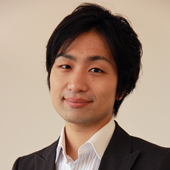 Hiroki KomazakiPresident and CEO, Florence
Hiroki KomazakiPresident and CEO, FlorenceMr. Hiroki Komazaki was born in 1979. After obtaining a BA in Policy Management from Keio University, he founded a non-profit named Florence to realize “a society where parents can value both raising children and work by solving the sick-children nursing issue with community-based solutions”. Since then, they have supported working parents in Metropolitan Tokyo with the first “mutual-aid and visiting style” child care service for sick-children.
In 2010, he started a “small-scale daycare centers” system by utilizing vacant houses to solve the issue of children on a childcare-waiting list, which was eventually adopted by the government’s zero waiting-list policy.
In 2012, he established Japan Sick Childcare Association and the Small-sized Childcare Council and became their chairperson.
Since 2010, he has served as a policy researcher of the Cabinet Office, as a member of the Council for the Research and Promotion of Policies for a “New Public Policy” and an “Intensive Review Meeting for Social Security Reform”. Also, he is the Chairman of “Iku-men, fathers actively involved with child-raising Project” at the Ministry of Health, Labor, and Welfare, a member of the “Children and Child-raising Committee” at the Cabinet Office, and an advisor of Policies for Children at Yokosuka-city.
He has been the recipient of multiple awards and honors including “Prime Minister Encouragement Award” and “The Harvard Business School Club of Japan’s Entrepreneur of the Year”. He has also been named as one of the “Newsweek’s Top 100 social entrepreneurs who change the world”.
Publications: “A Job to ‘Change the Society’: A Way of Life as a Social Entrepreneur” (Eiji-press), “Work Revolution” (Chikuma-shinsho), and “Money Usage to Change Society” (Eiji-press)
He is a father to a son and a daughter and took a two-month paternity leave for each. -
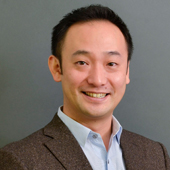 Daigo SatoPresident and CEO of JapanGiving Foundation, Dot-jp, Nonprofit Organization, and JG Marketing Ltd.
Daigo SatoPresident and CEO of JapanGiving Foundation, Dot-jp, Nonprofit Organization, and JG Marketing Ltd.Mr. Daigo Sato was born in Osaka in 1973. He started a business while attending Osaka University and then quit school. To increase the voter turnout of Japanese youth, he founded an NPO named .jp (Dot-jp), which has provided internship opportunities at the offices of politician since 1998. In 2010, he launched the “JustGiving Japan”, which was derived from the world’s largest donation site in England (In 2015, its name was changed to JapanGiving).
He devotes himself to raise awareness about a culture of philanthropic giving in Japan. -
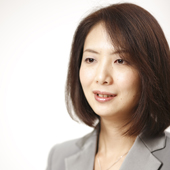 Kumi FujisawaCo-founder and Representative of Sophia Bank Ltd.
Kumi FujisawaCo-founder and Representative of Sophia Bank Ltd.Ms. Kumi Fujisawa founded Japan’s first investment trust evaluation company in 1996 after working for several investment fund management companies. She sold the company to Standard & Poor’s in 1999 and joined Think Tank SophiaBank to incubate new social systems by fostering social entrepreneurs in 2000, has worked as a co-founder since 2003. She was assigned as one of the Young Global Leaders in 2007 and the member of the Global Agenda Council in 2008 by World Economic Forum. She is currently a special advisor to Minister of Education, Culture, Sports, Science and Technology, a committee member at several government ministries, a board member at Japan Securities Dealers Association, and an external board member at some public-listed companies such as Toyota Tsusho Corporation. She is active in lecturing socially conscious investment strategies and management thorough publications, lectures, television and radio program “Kumi Fujisawa’s Shacho (Executive) Talk”. She has interviewed over 1000 leaders of corporations and ventures. She published more than 20 books on the topics of investment management and social entrepreneurial actions.
Her recent publication is "Naze Kawasaki Model ha seiko shitanoka? (Why has Kawasaki Model been successful?)" in 2014. She plays a big part in "Regional Revitalization". -
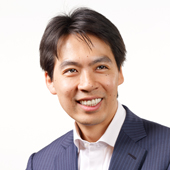 Retz FujisawaRepresentative Director, RCF
Retz FujisawaRepresentative Director, RCFBorn in 1975. After graduating from Hitotsubashi University, Mr. Retz Fujisawa joined McKinsey & Company in 2001. He then ran a consulting firm specializing in the management of non-profit and social sectors. After the Great East Japan Earthquake in 2011, he founded the RCF Reconstruction Support Team (now RCF).
He served as a researcher of general policy planning at the Reconstruction Agency since its establishment in February 2012 till August 2013. He also serves as an advisor to a regional revitalization project at the Ministry of Internal Affairs and Communications, and as also serves as a supporter of the Office of Reconstruction for Education under the Ministry of Education, Science and Culture.
He wrote “Work for Society -the field which creates future jobs and leaders” (Kodansha Ltd., 2015). Additionally, he co-wrote “Dilemma of Japan -what we propose to remodel Japan” (Asahi Shimbun Publications Inc., 2013), and “Creating Governance-new Publicness/Open Government/Leak Society” (Shunjusha Publishing Company,2011).
And, another collective writing, “Reconstruction changes Japan after the Great East Japan Earthquake- Governments, profit companies, and NPOs create the future together” (Gyosei), will soon be published. -
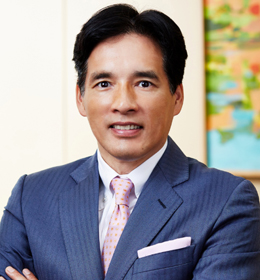 Yoshito HoriPresident, GLOBIS University;
Yoshito HoriPresident, GLOBIS University;
Managing Partner, GLOBIS Capital PartnersMr. Yoshito Hori established GLOBIS Management School in 1992 and GLOBIS Capital Partners in 1996. In 2003, GLOBIS started its original MBA program which, in 2006, received accreditation from the Japanese Ministry of Education and gained “university” status. GLOBIS started a part-time MBA program in English in 2009 and a full-time MBA program in English in 2012.
A Harvard MBA graduate and former Sumitomo Corporation employee, Mr. Hori founded the Entrepreneurs’ Organization (EO) Japan Chapter in 1995 and became the first board member from Asia in charge of Asia Pacific region in 1996. He also served on the World Economic Forum (WEF)’s New Asian Leaders Executive Committee and Global Agenda Council on New Models of Leadership, as well as the Harvard Business School Alumni Board from 2005 to 2008. Currently, Mr. Hori is a trustee of the Keizai Doyukai (Japan Association of Corporate Executives), and serves as co-chair of WEF’s Global Growth Companies.
In 2008, he launched the G1 Summit – a Japanese version of the WEF’s annual Davos forum. This led to the foundation of G1 Institute in 2013, which Mr. Hori serves as Representative Director.
Just days after a huge earthquake struck northeast Japan in March 2011, Mr. Hori launched Project KIBOW to support the rebuilding of the disaster-affected areas. The following year Project KIBOW was incorporated as the KIBOW Foundation, which Mr. Hori serves as Representative Director.
Mr. Hori received his BS in Engineering from Kyoto University and his MBA from Harvard Business School.
He is an avid swimmer and enjoys spending time with his family, especially his five sons. -
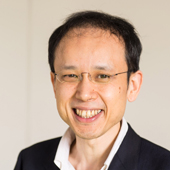 Haruo MiyagiFounder and President, ETIC (Entrepreneurial Training for Innovative Communities)
Haruo MiyagiFounder and President, ETIC (Entrepreneurial Training for Innovative Communities)Mr. Haruo Miyagi was born in Tokushima in 1972. In 1993, while attending Waseda University, he founded “ETIC. Student Entrepreneur Conference” as a nationwide network of student entrepreneurs. In 2000, he incorporated ETIC as an NPO and assumed the role of President. He has been selected as one of the “Young Global Leaders” by the World Economic Forum.
-
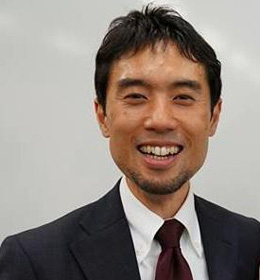 Reiji YamanakaDirector, KIBOW Impact Investment Team
Reiji YamanakaDirector, KIBOW Impact Investment TeamAfter having worked for Canon, GLOBIS Capital Partners, and two healthcare start-ups, Reiji Yamanaka has joined GLOBIS University and works as an Associate Professor. He holds an MBA from Harvard Business School. Since the Great East Japan Earthquake, he has supported and incubated social entrepreneurs in Tohoku, the disaster-affected region.
To Generate a New Current for Social Entrepreneurs“Outstanding social entrepreneurs are emerging, not only in Tohoku, but also in Japan. Aiming to change the society through business, social entrepreneurs are generating an upward current like a tornado. I hope that more capital flows into the tornado. While there are some incoming capital flows, such as subsidies, donations, and cloud funding, the total amount of capital is still limited. This is because not everyone can invest in a project with zero financial return. Therefore, I believe this is the time for new social investors who have “hope (KIBOW)” for financial returns in addition to social returns. This is the definition of Impact Investment. We have started impact investing to support entrepreneurs and to encourage other investors to support them.”
-
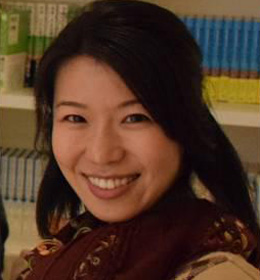 Suzuka KobayakawaProject development, Impact Investment Team
Suzuka KobayakawaProject development, Impact Investment TeamSuzuka Kobayakawa has joined KIBOW foundation after having worked as Project Manager at a social start-up company in Nigeria, as Reporting Officer for UNDP in Nepal, and as a Team Leader at Recruit in Japan. She is also an Acumen Global Fellow. She holds an MA in Sustainable Development from the SIT Graduate Institute.
Social Entrepreneurs can Change the World“Thanks to emerging social entrepreneurs who have proven that social impact and long-term financial returns are compatible, we are witnessing the expansion of Impact Investment markets that work alongside the hope of solving social issues, such as poverty, education, healthcare and income generation.
Outstanding social entrepreneurs are those who see chances in despair, believe in any form of potential, overcome failures with resilience and bring about creative ideas and innovations. Their stories attract more talent, knowledge and attention from investors who are willing to be part of the solutions to tackle social issues. This updraft-like positive cycle is being seen throughout the world, including Japan.” -
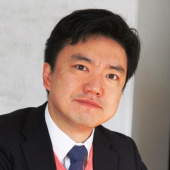 Yasuji TakaharaKIBOW Impact Investing Team Business Development
Yasuji TakaharaKIBOW Impact Investing Team Business DevelopmentAfter having worked for Marubeni Co. and engaged in business development projects, Yasuji Takahara has joined GLOBIS, contributed in the area of human resource management and placement while teaching as an Associate Professor. He has experience of fundraising and management at an NPO he co-founded. He also provides mentoring and coaching for start-up organizations as a Certified Professional of Co-Active Coach (CTI). He holds a BA in Law from the University of Tokyo and an MBA from GLOBIS University.
I’m Being with Social Entrepreneurs and Support them to Maximize their Social Impact“Our support starts from hearing the passion and constrains of leaders, and then empathizing with them. Nobody has to be perfect to maximize social impact. I believe you can make a difference as you are, by working on hand in hand and resuming constructive dialogues with us. It’s true that it takes time to change the world. Therefore, I commit to be with social entrepreneurs based on a long-term relationship until they overcome their challenges. Behind the scene, I keep supporting social entrepreneurs by utilizing knowledge and networks of GLOBIS University, the largest MBA school in Japan.






